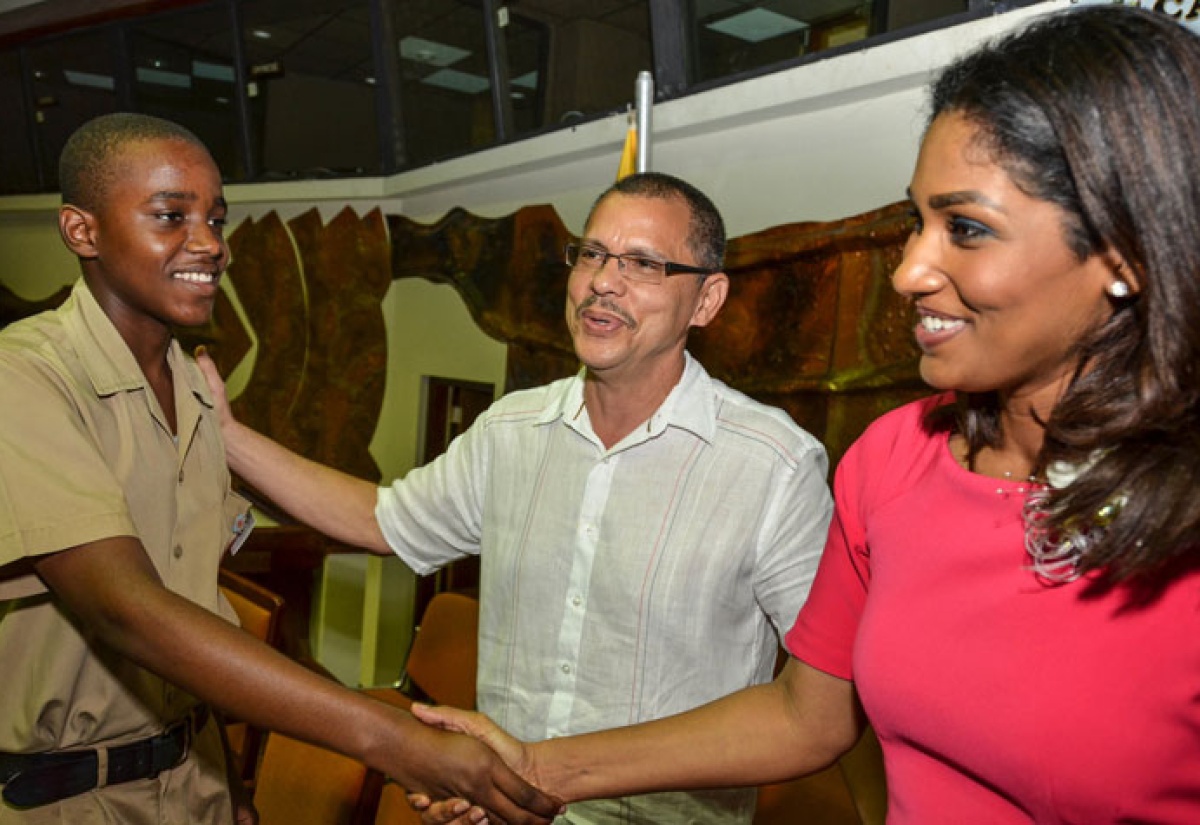Children’s Advisory Panel Making an Impact
By: , March 29, 2014The Key Point:
The Facts
- The 15-member Panel, comprising young people between the ages of 12 and 18 years, was developed by the Child Development Agency (CDA) to provide guidance and advice to the Chief Executive Officer, and management of the Agency
- Since its establishment, the Panel has met at least once quarterly and has developed biannual and annual work plans, as well as participate in a number of activities.
The Full Story
The latest project of the Children’s Advisory Panel (CAP), “Plant- a-Tree” is bearing fruit.
CAP’s 17-year-old Chairman, Charles Young, describes the project as the Panel’s “biggest accomplishment” since it was established on July 9, 2012.
“The Plant- a-Tree Scheme is hands-on and the most lucrative plan that we have. I am really proud of the team for coming up with the idea, following through and supporting the idea,” he says.
The 15-member Panel, comprising young people between the ages of 12 and 18 years, was developed by the Child Development Agency (CDA) to provide guidance and advice to the Chief Executive Officer, and management of the Agency, on ongoing matters pertaining to children in the child care and protection system. Panel members have elected among themselves peers to the posts of Chairman, Deputy Chairman, Secretary, Assistant Secretary, and Public Relations Officer.
Giving insight into the Plant-a-Tree initiative, Mr. Young says it entails visits to residential children’s homes and the planting of trees as a symbolic gesture.
“Just as the tree grows, so our relationship would grow as well,” he points out.
The scheme was conceptualised during one of the Panel’s brain storming sessions. “I am glad it manifested and didn’t end up being just an idea, but something that we actually did,” he says.
Meanwhile, the CAP has, so far, visited four homes across the island to conduct research on the experiences of wards and staff.
Since its establishment, the Panel has met at least once quarterly and has developed biannual and annual work plans, as well as participate in a number of activities.
It has carried out an independent review of the Trafficking in Persons Act; held consultations at child care facilities; and facilitated regional stakeholder consultations on the Child Care and Protection Act, and the Children (Adoption of) Act Review Projects.
The CAP Chairman has also participated in the United Nations Education First Initiative in New York, and London, and was nominated to serve with the UNESCO Youth Advisory Group, as the only representative for the children.
Mr. Young says the Panel intends to start a blog, which will “highlight issues that need to be heard.”
“Each one of us will write an entry about something that we find interesting. We have six target questions and we will decide which one we will answer first, and when we have completed those, we will tackle personal interests,” he reveals, stating that a name is to be designed for this initiative.
Stressing the relevance of the CAP, Mr. Young says it is particularly important at this time when youth participation in national development is critical. He noted that the old adage “children should be seen and not heard” is no longer tolerable.
The Panel members are allowed to serve two two-year terms. If a member reaches the age of 18 during the period of engagement, their tenure comes to an end. In another five months, there will be new Panel members, as the tenure of some members will end in August.
Commenting on the CAP’s success, Mr. Young says, “I think we fulfilled our objectives and we did some things, but there is more to be done.”
“We are the first Panel, so we had the great task of forging our own path. We will set the pace for the panel that comes after us and they will build on what we started,” he says.
The operations of the Panel are guided by the CDA Child Participation Protocol, and Children Advisory Panel Handbook. The group is supported by an officer of the CDA, who provides assistance in the coordination and execution of activities.


